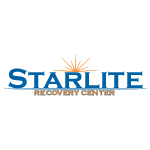
Contributor: Staff at Starlite Recovery Center
Given the severity of the opioid crisis in America, it is evident that opioid misuse is prevalent in a wide range of communities. Of those affected, the LGBTQ+ community is at a higher risk for opioid misuse due to the cumulative burden of minority discrimination that can lead to mental health illnesses and, in many cases, substance abuse as a means of coping with discrimination.
In addition to interpersonal struggles, there is an added susceptibility to drug abuse through LGBTQ+ community norms.
Minorities & Mental Health
The state of a person’s mental health can be dependent on many different aspects of their life, whether external or internal. External stress factors may include work, relationships, and major life changes. Internal stress factors can involve feelings of uncertainty, low self-esteem, and unrealistic personal expectations.
For some populations, like the LGBTQ+ community, stress factors can multiply due to added layers of external and social challenges such as the threat of physical violence, societal exclusion, and lack of emotional support.
This idea is explained by the Minority Stress Model, which asserts that mental health affliction can be attributed to stress factors that are unique to minority groups. These factors can be external, internal, or interactive, relating to the anticipation of external factors to occur [1].
Internal stressors such as expectations of nonacceptance and experiences with discrimination can be multiplied by external stressors like cultural, sexual stigmas and homophobia. Environmental factors that are exclusive to minority groups can cause significant, isolated stress, and the culmination may inhibit a person’s ability to cope [1].
Call Starlite Recovery Center – 866-306-0189
LGBTQ+ people specifically may experience higher levels of shame and discrimination from society due to negative stereotypes. In an article released by the Substance Abuse and Mental Health Services Administration (SAMHSA), it is noted that of those in the U.S. population who identify as lesbian, gay, or bisexual, 39% reported having a mental illness in the past year, a percentage that is equivalent to nearly 5.8 million people [2].
Furthermore, Mental Health America claims that “the bisexual and transgender communities have the highest rates of mental health concerns within the LGBTQ+ population” and that mental health concerns are most prevalent in younger LGBTQ+ people [2].
Opioid Misuse & Medication to Cope
There are many ways people are initially introduced to opioids and a myriad of reasons why they may begin misusing them.
While it can be dangerous, many people self-medicate to cope with symptoms of mental health concerns. This path to opioid misuse is particularly high among LGBTQ+ young adults due to internal and interpersonal stressors, according to a 2019 study [3].
The study concludes that LGBTQ+ youths engage in substance use at an earlier age than non-LGBTQ+ youths and adopt use at a quicker pace, which can set a trajectory for misuse in adulthood [3].
Focusing on addressing mental health concerns at this developmental stage can be especially effective in preventing substance abuse later in life.
Sociocultural Influences
 An external driving force and a gateway for misuse is the sociocultural influence of the LGBTQ+ population. There are times when social settings have been described as “substance-saturated environments” where drugs are easily accessible and the pressure to use is high. A dependency on these establishments to meet LGBTQ+ peers puts this population at a greater risk for developing substance use disorders [3].
An external driving force and a gateway for misuse is the sociocultural influence of the LGBTQ+ population. There are times when social settings have been described as “substance-saturated environments” where drugs are easily accessible and the pressure to use is high. A dependency on these establishments to meet LGBTQ+ peers puts this population at a greater risk for developing substance use disorders [3].
The same 2019 study specifically calls out bars frequented by LGBTQ+ people as being especially relevant, as they “offer ‘paradoxical space’ for community building and high levels of substance use and other risky behaviors” that may lead to opioid misuse [3].
By addressing the ways LGBTQ+ people who are struggling with substance abuse engage socially, further substance use or relapse may be preventable.
References
[1] Valentine, S. & Shipherd, C. (2018). Minority stress model as theoretical framework. Clinical Psychology Review. 1.10.
[2] Mental Health America. LGBTQ+ Communities and Mental Health. https://www.mhanational.org/issues/lgbtq-communities-and-mental-health
[3] Felner, J., Wisdom, J., Williams, T., Katuska, L., Haley, S., Jun, H., & Corliss, H. (2019). Stress, Coping, and Context: Examining Substance Use Among LGBTQ Young Adults with Probable Substance Use Disorders. Psychiatric Services, 71 (2), 112-120. https://doi.org/10.1176/appi.ps.201900029
About Our Contributor
 Starlite Recovery Center is located in Center Point, Texas, an hour northwest of San Antonio and is a premier residential treatment center for adults who are struggling with addiction and co-occurring mental health concerns. Our campus is situated on 55 acres of beautiful Texas hill country, offering clients the ideal place to get away from life’s daily stressors and truly focus on their recovery. In addition to residential treatment, Starlite offers detoxification services and an intensive outpatient program (IOP). We also provide care for diverse populations, with specialty tracks for LGBTQ+ people, Christians, military veterans and first responders. For more information, please visit www.starliterecovery.com.
Starlite Recovery Center is located in Center Point, Texas, an hour northwest of San Antonio and is a premier residential treatment center for adults who are struggling with addiction and co-occurring mental health concerns. Our campus is situated on 55 acres of beautiful Texas hill country, offering clients the ideal place to get away from life’s daily stressors and truly focus on their recovery. In addition to residential treatment, Starlite offers detoxification services and an intensive outpatient program (IOP). We also provide care for diverse populations, with specialty tracks for LGBTQ+ people, Christians, military veterans and first responders. For more information, please visit www.starliterecovery.com.
The opinions and views of our guest contributors are shared to provide a broad perspective of addictions. These are not necessarily the views of Addiction Hope, but an effort to offer a discussion of various issues by different concerned individuals.
We at Addiction Hope understand that addictions result from multiple physical, emotional, environmental, and genetic factors. If you or a loved one are suffering from an addiction, please know that there is hope for you, and seek immediate professional help.
Published on August 1, 2022
Reviewed by Jacquelyn Ekern, MS, LPC on August 1, 2022
Published on AddictionHope.com
